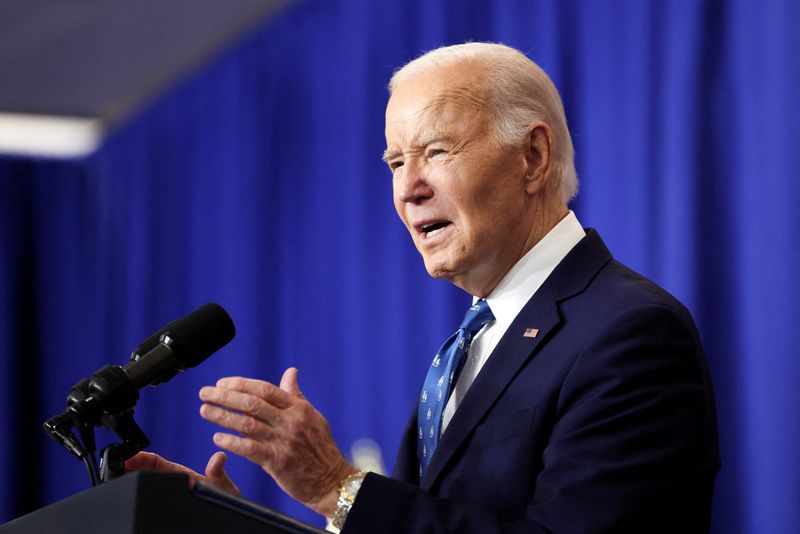(Reuters) – President Joe Biden, who leaves office next week, announced on Friday that he was commuting the sentences of nearly 2,500 people convicted of non-violent drug offenses, saying he has now issued more individual pardons and commutations than any predecessor.
Those benefiting from Friday’s action “are serving disproportionately long sentences compared to the sentences they would receive today under current law, policy, and practice,” Biden said in a statement.
The move provides clemency relief to individuals who were sentenced based on discredited distinctions between crack and powder cocaine and outdated sentencing enhancements for drug crimes, according to the statement issued by the White House.
In December, Biden commuted the sentences for 37 out of 40 federal inmates on death row, converting them to life in prison without parole, ahead of President-elect Donald Trump returning to the Oval Office on Jan. 20.
He also announced in the same month that he was pardoning 39 people convicted of non-violent crimes and commuting the sentences of nearly 1,500 others who were serving long prison terms.
Biden has faced criticism for pardoning his son, Hunter, who had pleaded guilty to tax violations and was convicted on firearms-related charges.
Defense attorneys and civil rights groups had ramped up efforts to highlight compelling cases and launched campaigns to help those they believe were wrongly convicted or are serving excessive terms for nonviolent offenses.

Presidents typically order a round of pardons toward the end of their time in office.
Trump has promised to grant clemency to at least some of his supporters who stormed the U.S. Capitol on Jan. 6, 2021 in a failed bid to block Congress from certifying Biden’s 2020 election victory.
#Biden #commutes #sentences #time #nonviolent #drug #offenders #Reuters